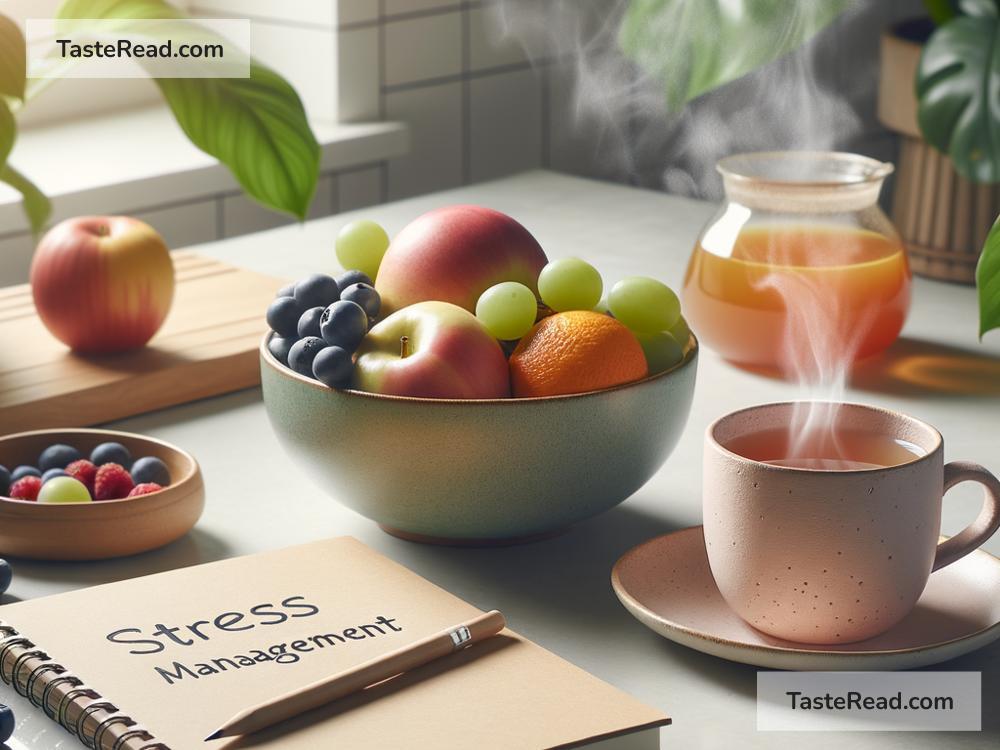Understanding the Connection Between Diet and Stress Management
Stress has become such a common part of daily life that many people barely notice its effects. From juggling work deadlines to dealing with family responsibilities, stress can creep into almost every corner of our lives. While stress is inevitable, managing it effectively can greatly improve your mental and physical health. One surprising way to do this is through the food you eat. Yes, your diet plays a huge role in helping your body cope with stress. Let’s explore this connection in simple terms to understand how better food choices can lead to better mental well-being.
What Is Stress, and What Does It Do to Your Body?
Before discussing food, let’s talk about what stress actually does. When you feel stressed, your body produces hormones like cortisol and adrenaline. These hormones are designed to help you handle challenges, but if your stress continues for long periods, it takes a toll on your physical and mental health.
Stress can lead to problems like trouble sleeping, headaches, poor concentration, mood swings, muscle tension, and even chronic illnesses like heart disease. It also impacts your immune system, making it harder for your body to fight off infections.
How Does Food Help with Stress Management?
The foods you eat serve as fuel for your body, but it’s not just about physical energy. Different foods affect your mood, brain function, and ability to cope with stress. Studies show that certain nutrients influence the stress hormones in your body and keep your mood steady. Eating well doesn’t mean you’ll never feel stressed, but it can make your body and brain more resilient when facing difficult situations.
Key Nutrients That Help Manage Stress
-
Complex Carbohydrates
Foods like whole grains, oats, and brown rice can help your body release more serotonin, a brain chemical that makes you feel calm and happy. Unlike sugary snacks that create an energy spike and crash, complex carbohydrates provide steady energy and keep your mood balanced. -
Omega-3 Fatty Acids
Omega-3s are found in fish like salmon, walnuts, flaxseed, and chia seeds. These healthy fats support brain health and reduce inflammation, which can help lower anxiety and anger. -
Magnesium
Magnesium is known as a “calming mineral.” It plays a key role in relaxing muscles and calming the nervous system. You can find magnesium in leafy greens like spinach, nuts, seeds, and avocados. -
Vitamin C
This nutrient helps lower cortisol levels and boost your immune system. Foods like oranges, strawberries, broccoli, and bell peppers are all rich in vitamin C. -
B Vitamins
These vitamins, especially B6 and B12, are essential for brain health. They help keep your energy up and can reduce feelings of fatigue or irritability. Sources include whole grains, eggs, dairy, and leafy greens. -
Protein
Protein-rich foods like chicken, beans, yogurt, and lentils contain amino acids that support brain function. Eating protein keeps your blood sugar stable, which prevents dramatic mood swings. -
Healthy Fats
Healthy fats like those in olive oil, nuts, and seeds are good for reducing inflammation and keeping your mind sharp.
Foods to Avoid During Stress
While choosing stress-relief foods is important, it’s equally crucial to avoid certain items that make things worse.
- Sugary Snacks: Sugary treats may give you quick energy, but they often lead to a crash that can leave you feeling tired and cranky.
- Processed Foods: Chips, frozen meals, and fast food are often high in unhealthy fats and low in nutrients. These can worsen your mood and increase inflammation.
- Caffeine: A cup of coffee might wake you up, but too much caffeine can increase heart rate and anxiety levels.
Stress and Emotional Eating
It’s normal to reach for comfort food during stressful times, but emotional eating can lead to unhealthy habits. Instead of grabbing chips or cookies when you’re stressed, try planning ahead with healthier snacks like almonds, orange slices, or a granola bar.
How to Improve Your Diet for Stress Relief
If you want to use food as a tool to manage stress, here are some easy tips:
1. Plan Ahead: Keep your kitchen stocked with healthy options. This reduces the temptation to reach for junk food when stress hits.
2. Snack Smart: Instead of eating chips or chocolates, choose nuts, fruits, or yogurt as snacks.
3. Stay Hydrated: Drinking enough water keeps your mind alert and reduces fatigue. Herbal teas like chamomile or green tea can also relax you.
4. Eat Regularly: Skipping meals can cause a drop in blood sugar, which leads to irritability. Make sure you eat balanced meals throughout the day.
5. Practice Moderation: Enjoy occasional treats, but balance them with nutrient-rich meals and snacks.
Final Thoughts
Stress is a part of life, but learning to manage it is important for your long-term health. The way you eat greatly influences how your body copes with stress. By choosing nutrient-rich foods and avoiding unhealthy options, you can improve your mental clarity, boost your energy, and calm your mood—all while taking care of your overall well-being.
The next time life throws challenges your way, remember that food can be your ally in managing stress. Small changes, like adding more whole grains, fruits, and vegetables to your meals, can make a big difference. So, don’t underestimate the power of good nutrition in keeping your mind and body strong during stressful times!


